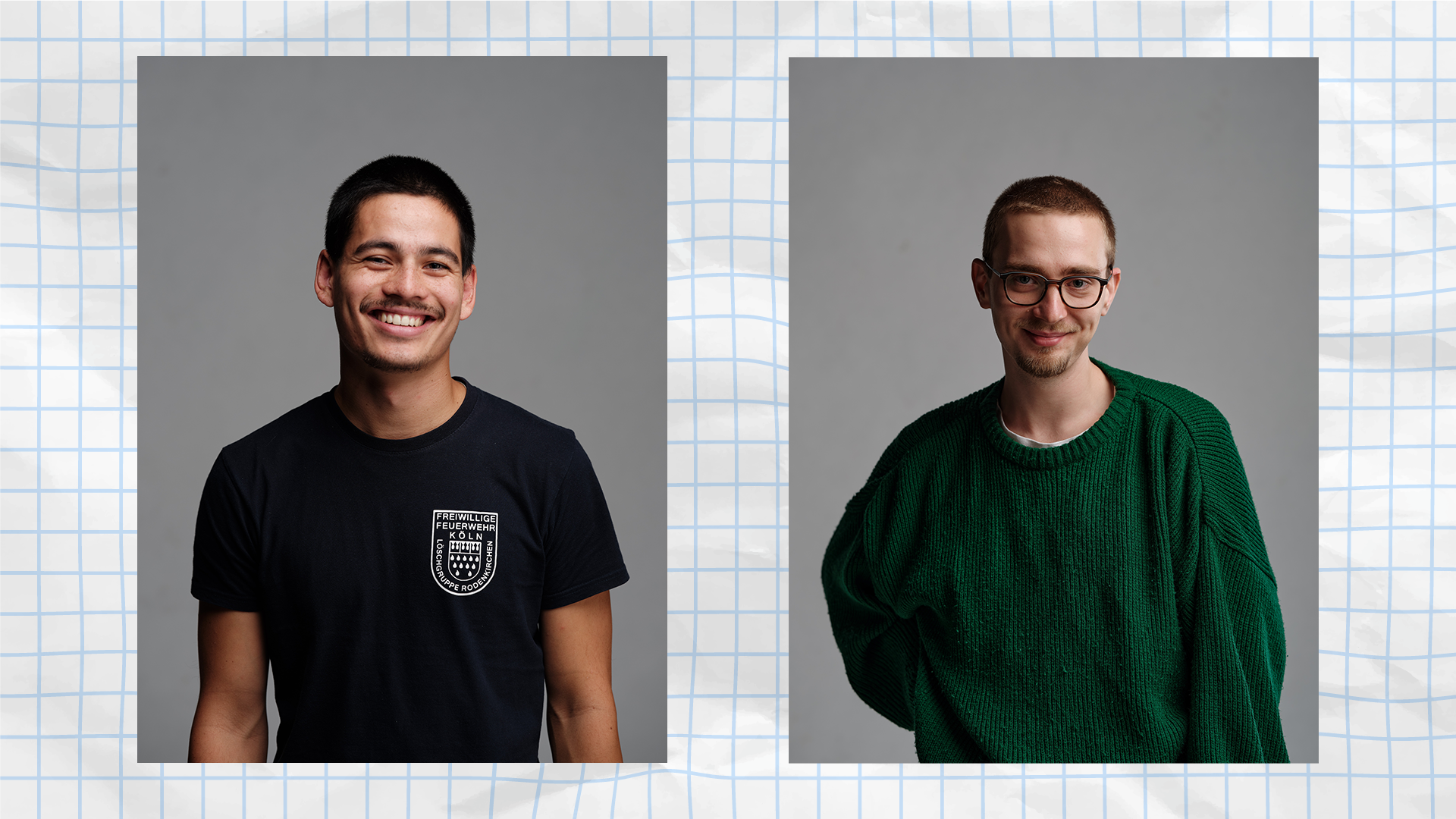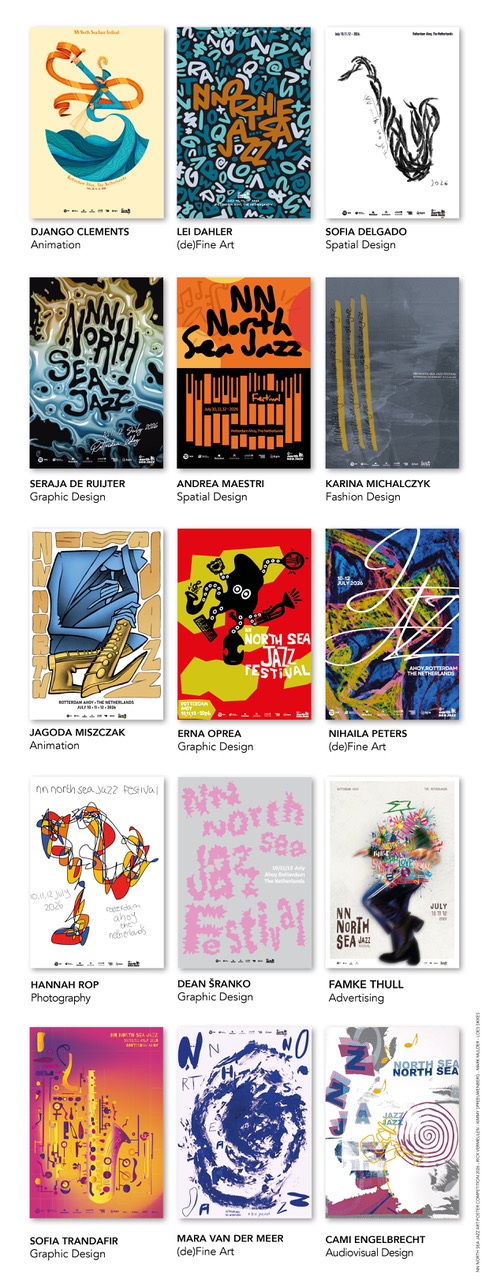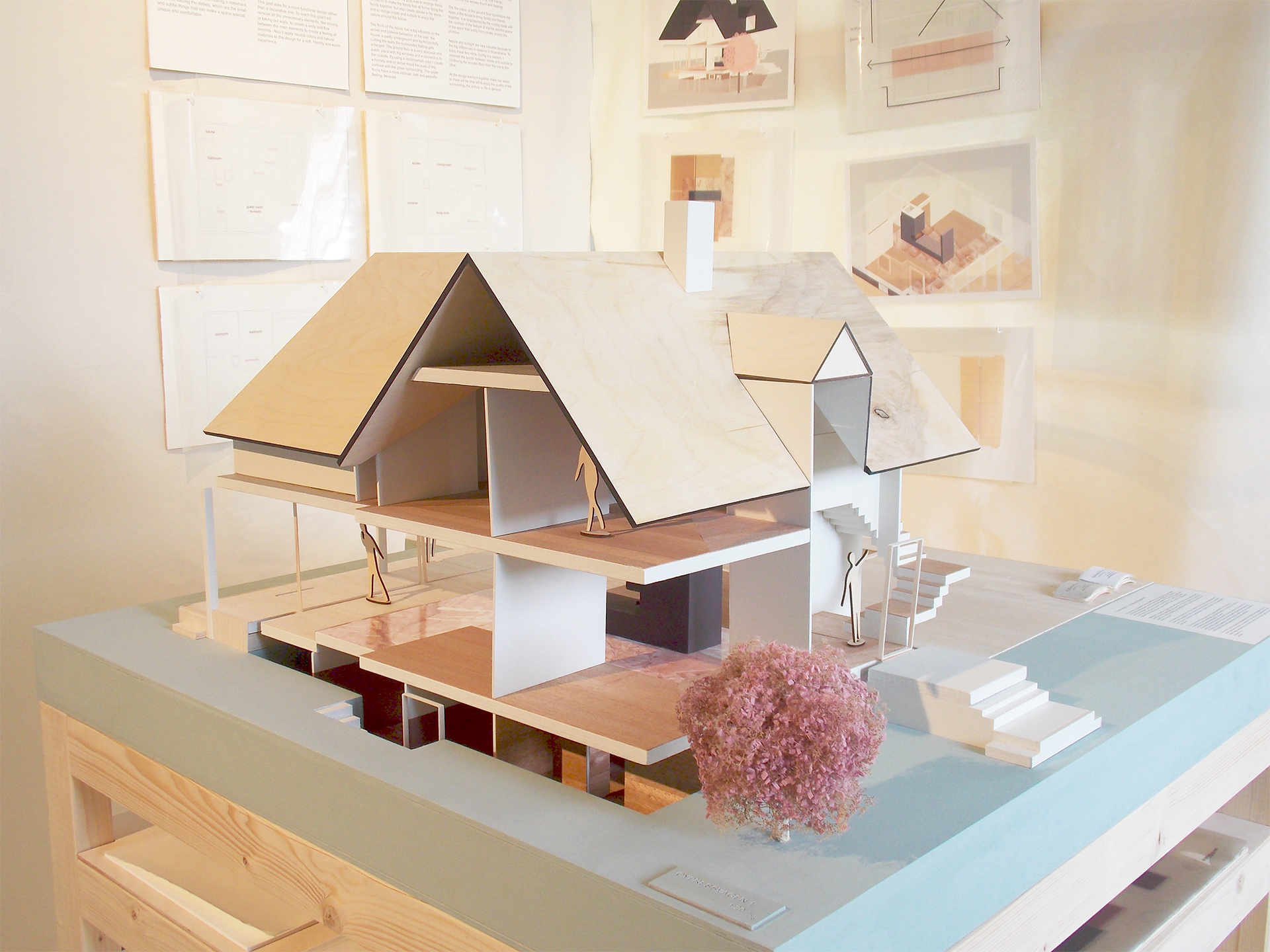In the second semester of 2018, WdKA students Amarens van Herpen (3rd-year Fine Art and Design Teacher Training), Jodie Joossen and Ties Kweekel (3rd-year Spatial Design) have worked on designing the school of the future, a project commissioned by the Ministry of Education, Culture and Science. In 2018 Ministry celebrated its centenary and asked several art academies in the Netherlands to come up with a new perspective on the school of the future.
Willem de Kooning Academy, Rotterdam
E
1+1 Could Be 6
Every year, a new group of schoolchildren gets squeezed into a programme that calls itself the educational curriculum. After completing primary school, these children are then subdivided into different levels of secondary education. Children become pupils who are required to meet specific learning goals. After growing up in an educational system that’s all about grades, the logical next step is ECTS credits; pupils become students. Finally, the graduates make their entrance into the world at large. A world for which they have been prepared by the education they have just completed. But have they really?
Our society has changed at lightning speed over the past 25 years. However, education has not developed at the same pace. If we stick to the mathematical fact that 1 + 1 will always remain 2, then this gap will only go on increasing. But 1+1 can also be 6. If we can believe this, then education can play a key role in the world of 2043. But how?
A 6 - Point Manifesto for Education in 2043
-
1. The teacher as a source of inspiration
Let teachers become sources of inspiration. Stop the administrative overkill and the endless monitoring of students. The coercive nature of today’s compulsory education generates unnecessary stress and pressure to perform. The education of tomorrow will no longer rely on predetermined levels and marks, but instead on educational content that addresses the talents and interests of its individual pupils. The teacher facilitates and generates a safe practising environment, and is the connecting factor between the school and the outside world. Rather than simply getting pupils from A to B as quickly and efficiently as possible, the teacher inspires them to wander and find their own path. The teachers of tomorrow will collectively design project-oriented teaching formats in which individual pupils are given the opportunity to formulate questions and to conduct research. Give the responsibility for education back to the teacher and the pupil, while also encouraging the commitment of parents.
-
2. Lifelong development
As the world’s population continues to grow, technology is taking over many jobs, leading to an estimated 40% unemployment by 2043. This is why lifelong development is a necessity. The school plays a key role in this regard, as an open environment for anyone interested in their own further development, regardless of their age. Let us teach pupils to excel at things that can’t be done better by technology. Flexibility, creativity and personal contact all play a leading role, while technology remains a tool.
-
3. Social development
School isn’t just about gaining knowledge and developing skills, but also about social development. The school of the future encourages us to realise that the world does not revolve around us, but that we exist in relation to the world. Unconstrained social contact, genuine interest, patience and empathy will all become increasingly important life skills.
-
4. The world as a schoolyard
The school must open its doors, go out into the world! There is more to experience and discover outside the school building than in a classroom. At the same time, the school must bring the world into the classroom. Like a benign parasite, the school will invade other buildings. The schoolyard will no longer be the walled playground where students are kept inside for fear that something might go wrong. Not surprisingly, school plays a key role in society. The schoolyard is the world, a safe environment where pupils from a young age practice and learn to be part of society.
-
5. It’s okay to hang around and play
Hanging around is a waste of time, we’re told, something we can’t afford in today’s education! But hanging around opens up the possibility of boredom. And precisely this boredom allows our thoughts to roam. Playfulness can be the best thing to do when concentration drops, or when there is a need for some other kind of activity. Let us never forget that we work not only with our brains but also with our bodies. A casual moment for which we must set aside enough time every day so that we can remain active in the world of 2043.
-
6. Unused spaces
The school of the future will consist mostly of unused spaces. Though unused spaces might sound like a complete waste of space, they have the power and flexibility to be used by everyone in a different way. Our spatial concept encourages a proactive attitude, which will be a crucial skill in the world of 2043. Our school is also able to grow along with its pupils. The further they grow, both physically and mentally, the smaller the distance becomes between the safe learning environment and the real world.
In the end, everyone has the best intentions for education. This is something we believe without any doubt. And yet, education has become almost a dirty word and is often portrayed negatively in the news. So let’s put our heads together, give young talent a chance to realise its vision on education, and let us not allow the interests of organisations and political parties to outweigh the importance of good education. And quickly! A new group of young pupils will be starting their school career at the end of this summer.
Website: 1PLUS1MAG6ZIJN
Contact: info@1plus1mag6zijn.nl
NL
1 PLUS 1 MAG 6 ZIJN
Jaarlijks wordt een nieuwe lichting kinderen vanaf groep 1 geperst in een programma dat zich het educatiecurriculum noemt. Na de basisschool worden die kinderen in het voortgezet onderwijs onderverdeeld in niveaus. Kinderen worden leerlingen die hun leerdoelen moeten halen. Opgegroeid in een educatiesysteem waarin het draait om cijfers, zijn ECTS punten de logische vervolgstap; de leerling wordt student. Na de diploma-uitreiking stappen de alumni de wijde wereld in. Een wereld waar je op voorbereid bent door het gevolgde onderwijs. Of niet?
De afgelopen 25 jaar heeft onze maatschappij zich razendsnel ontwikkeld. Het onderwijs heeft zich niet evenredig meeontwikkeld. Houden wij ons vast aan het mathematisch feit dat 1+1 altijd 2 zal blijven, dan zal de achterstand alleen maar groter worden. 1+1 mag 6 zijn; als wij daarin gaan geloven, kan het onderwijs een centrale rol spelen in de maatschappij van 2043. Maar hoe?
Een zespuntenmanifest voor het onderwijs van 2043
-
1. De docent als inspirator
Laat de docent inspirator worden. Stop met de overdaad aan administratie en het continu monitoren van leerlingen. Het dwingende karakter van het huidige onderwijs en de daarbij behorende leerplicht zorgen voor onnodige stress en prestatiedruk. Het toekomstige onderwijs kent geen cijfers en vaste niveaubepalingen meer, maar sluit aan bij ieders talenten en interesses. De docent faciliteert en creëert een veilige ruimte om te oefenen en is de verbindende factor tussen school en de wereld daaromheen. In plaats van de leerling zo snel en effectief mogelijk van A naar B te krijgen, is het belangrijk om de leerling te inspireren om te dwalen en zelf een route te vinden. De docent van de toekomst ontwerpt samen met andere docenten projectmatig onderwijs waarbij leerlingen zelf de kans krijgen vragen te formuleren en onderzoek te doen. Geef de verantwoordelijkheid voor het onderwijs terug aan de docent en aan de leerling, en stimuleer de ouders om een betrokken rol te spelen.
-
2. Leven lang ontwikkelen
De wereldbevolking groeit, de technologie neemt banen over en in 2043 zit naar schatting 40% van de bevolking werkeloos thuis. Daarom is een leven lang ontwikkelen noodzakelijk. Hierin speelt de school een centrale rol als open plek voor iedereen die op welke leeftijd dan ook, zich verder wil ontwikkelen. Laten we leerlingen leren om goed te zijn in datgene wat technologie niet beter kan. Flexibiliteit, creativiteit en persoonlijk contact spelen hierin een belangrijke rol, technologie blijft een hulpmiddel.
-
3. Sociale ontwikkeling
School draait niet alleen om het opdoen van kennis en het ontwikkelen van vaardigheden, maar stimuleert ook de sociale ontwikkeling. De school van de toekomst biedt ruimte om jezelf niet in het centrum van de wereld te plaatsen, maar in verhouding tot de wereld. Ongedwongen sociaal contact, oprechte interesse, geduld en een empathische houding worden belangrijker dan ooit.
-
4. De wereld als schoolplein
De school moet zijn deuren opengooien, erop uitgaan! Buiten het schoolgebouw is meer te ervaren en te ontdekken dan in een klaslokaal. Tegelijkertijd haalt de school de wereld naar binnen. Als een goedaardige parasiet dringt de school binnen in andere gebouwen. Het schoolplein is niet langer de ommuurde speelplaats waar leerlingen angstvallig binnen worden gehouden. Niet verbazingwekkend speelt de school een centrale rol in de samenleving. Het schoolplein is de wereld, waar leerlingen van jongs af aan in een veilige omgeving oefenen en leren om deel uit te maken van de maatschappij.
-
5. Lummelen en spelen mag
Lummelen betekent ‘tijd verdoen’, daar hebben we in het huidige onderwijs geen tijd voor! Maar lummelen biedt ruimte voor verveling. Juist in die verveling krijgen gedachten de vrije loop. Wanneer de concentratie verslapt, of er behoefte is aan een andere activiteit mag er worden gespeeld. Laten we niet vergeten dat we niet alleen met onze hersenen, maar ook met ons lichaam werken. Een ongedwongen moment dat dagelijks moet kunnen, om mee te bewegen in de maatschappij van 2043.
-
6. Loze ruimte
De school van de toekomst bestaat grotendeels uit loze ruimtes. Loze ruimtes klinken als pure ruimteverspilling, maar hebben juist de kracht en flexibiliteit om door iedereen op een andere manier gebruikt te worden. Ons ruimtelijke concept stimuleert het eigen initiatief, want in 2043 zullen we dat hard nodig hebben. Bovendien is onze school in staat mee te groeien met de leerlingen. Hoe meer ze groeien, zowel fysiek als mentaal, hoe kleiner de afstand tussen de veilige leeromgeving en de echte wereld wordt.
Tot slot heeft iedereen het beste voor met het onderwijs. Dat geloven wij zonder twijfel. Toch is onderwijs een bijna vies woord geworden en komt veelal negatief in het nieuws. Steek de koppen bij elkaar, geef jong talent de ruimte hun visie op het onderwijs te realiseren en laat de belangen van organisaties en politieke partijen niet zwaarder wegen dan het belang van goed onderwijs. Snel! Een nieuwe lichting groep 1’ers begint na de zomer hun schoolcarrière.
Website: 1PLUS1MAG6ZIJN
Contact: info@1plus1mag6zijn.nl



